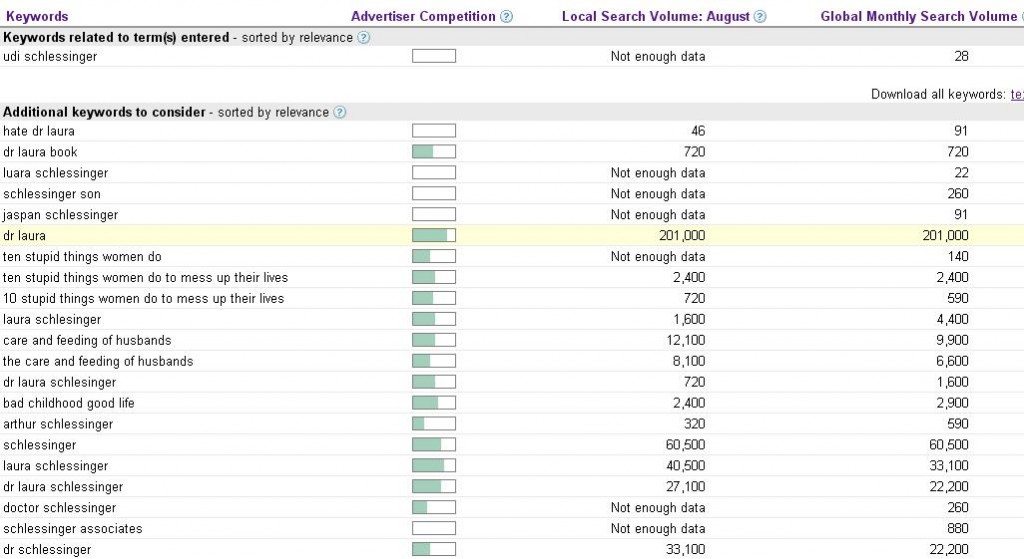
I keep planning to do two big posts and yet things always keep interrupting me and I end up writing about something else. I suppose this is the good thing about having a blog: you can always talk about what you find interesting at the moment. And I still intend to write the other posts.
Some time ago I created a new site promoting a piece of clothing (I won’t say which one). Using several tools, I estimated it would have a decent amount of traffic, even if on the low side, and little competition. Furthermore, I did a quick search: monetization should be easy: both in terms of ad revenue and in terms of affiliate offers (easily found some, and good ones too). I built the site, and within 2 weeks ranked #1 on Yahoo, Bing and Google. Piece of cake.
To my surprise, I got traffic, but very little of it. Really disappointing; although I was not expecting a lot of traffic, clearly the tools I used to estimate what I’d get were wrong since I never got more than 5 visitors a day – and I was #1 on all three search engines!
Therefore, I started using it as a test site: I did experiments with it such as removing a large number of backlinks at the same time to see what would happen: they slowly vanished from the my site (meaning, the backlink count slowly started going down every day), and eventually I lost my #1 position on Bing – but that’s it, still #1 on both Google and Yahoo.
I removed the ads and started testing other forms of monetization, not because I thought I’ll get anything from it (clearly I would not with so little traffic), but because I wanted to see how it would look/affect the rankings/whatever. Some things have peculiar effects on SERPs and I was curious whether I’d stumble on anything interesting.
Following a conversation with a friend I had on Friday, I decided I’ll just flip (sell) the site. I’ll rebuild the backlinks, restore the ads, and quickly regain my #1 Bing position. I would advertise it exactly as it is: #1 rankings on all search engines, all original content, small niche, but very little revenue. Hey, even if I get a $150 it’s worth it – it may be useful for someone else, but from my perspective the site is a total loss.
As I started rebuilding links I noticed something .. interesting. Something which completely made me feel like an idiot. Apparently all this time I was checking the site rankings for the wrong keyword phrase. Clearly I was #1 for a phrase but it was not the phrase I was aiming for originally. And all this time I just assumed I somehow got a niche that sounded good in theory, but in fact isn’t. After checking my rankings for the right keyword phrase I saw I’m around 40 something. This clearly explains the low amount of traffic I get… and still not so bad considering I eliminated a large portion of its backlinks in an antagonizing way to the search engines.
So no total loss. Back to building backlinks, I restored all the ads, added multiple affiliate offers (more than I had before) and starting tracking the right statistics now.
This emphasizes the importance of doing things meticulously. Although I usually pride myself on being very thorough, I’m only human too. I’m at least glad to see that it means this site is not a total loss and may yet prove to be quite a good one!






